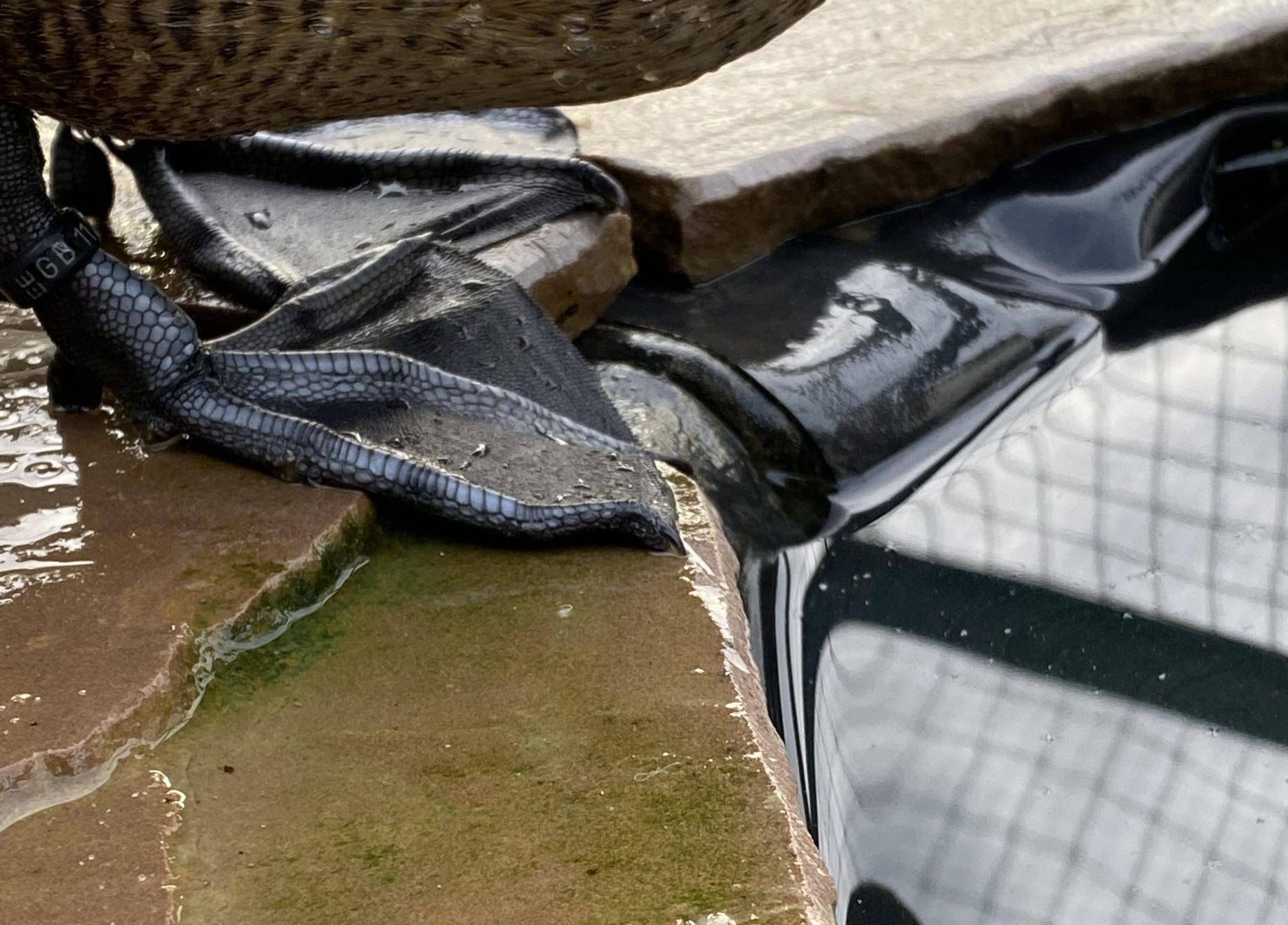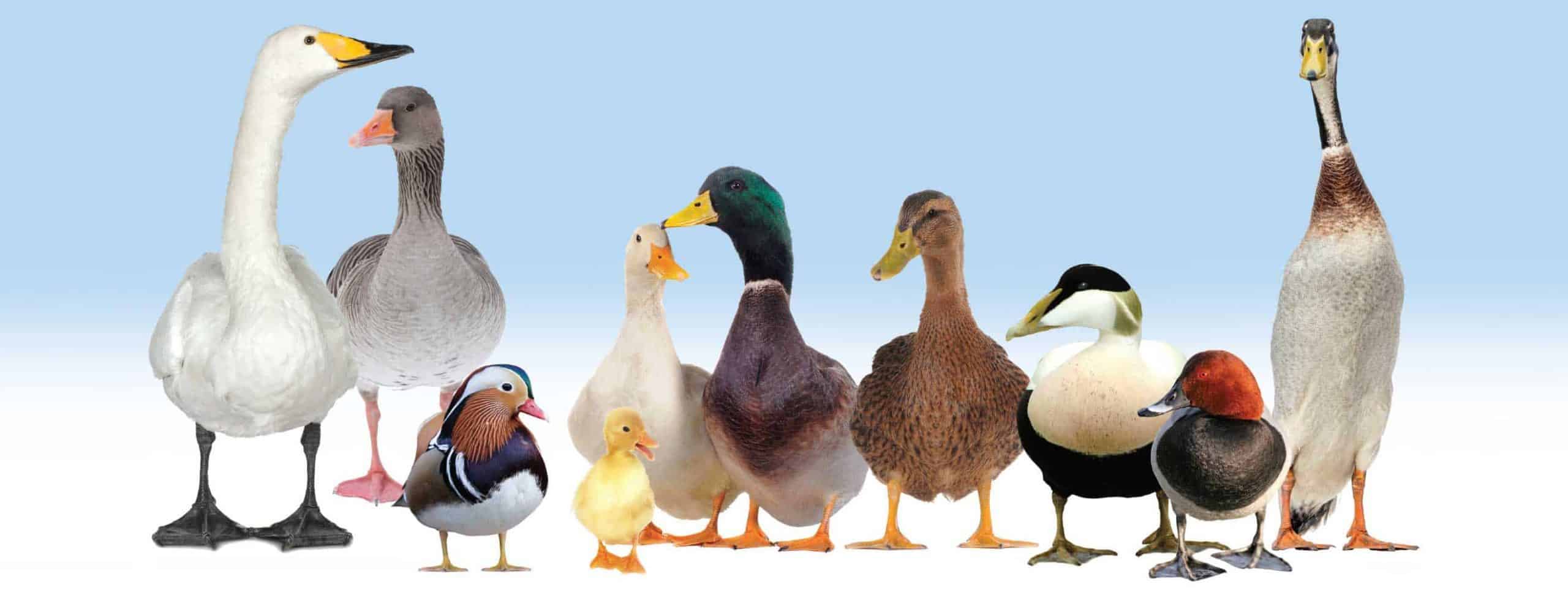Thinking of their feet.
The current Avian Influenza housing/netting restrictions for waterfowl may impact on foot health.
Build up of Ammonia from faeces in bedding or bacteria in the soil can contribute to drying of webs, callus formation and Staphylococcus aureus bacterial foot/leg infections.
Consideration for foot health actually starts from the moment a duckling hatches from the egg since the rearing environment and choice of bedding can have implications on their feet too. Hatching ducklings too early in the breeding season can prevent them being put outside on clean grass — which is known to help with healthy feet.
Domestics such as the heavy breeds, Indian Runners and geese are more vulnerable to foot problems. Veterinary advice & treatment with antibiotics is often successful, but some birds infected with more unusual soil bacteria fail to respond.
If you make hard-edged ponds, it may be worth grinding sharp edges to reduce the psoosibility of injury. River-washed gravel is kinder to feet than crushed rock if you ar looking for a clean hard substrate.
Think of your birds' feet as we approach the winter months. Quite apart form the obvious welfare issues, does extensive callus formation or a missing toenail impact on a birds performance at a national show when competing against fowl with perfect feet for Supreme Show Champion?



